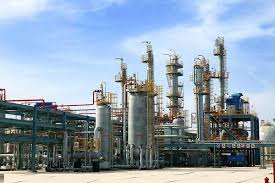SK Group to exit Sinopec JV stake as it shifts from chemicals to AI and chips
South Korea’s SK Group is set to offload its entire 35% stake in Sinopec-SK Petrochemical, marking a full retreat from the commodity chemicals sector

South Korea’s SK Group is set to offload its entire 35% stake in Sinopec-SK Petrochemical, marking a full retreat from the commodity chemicals sector as oversupply and shrinking margins reshape the industry.
The divestment is being handled by SK Geo Centric, a subsidiary of SK Innovation, which has opened talks with joint-venture partner China Petroleum & Chemical Corp. (Sinopec), the majority shareholder with 65%, alongside other potential Chinese buyers, according to people familiar with the matter. The transaction is expected to be valued at roughly its book worth of 819.3 billion won ($594 million).
The Wuhan-based plant, launched in 2013, can produce 3.2 million tons of commodity chemicals annually, including 1.1 million tons of ethylene. It generated peak annual revenue of about 10 trillion won, and in its first eight years amassed nearly 2 trillion won in operating profit, buoyed by global shortages of ethylene, a cornerstone petrochemical. But fortunes have since reversed: since 2021, the plant has accumulated losses exceeding 1 trillion won as China doubled its ethylene capacity to 60 million tons by 2023, overwhelming demand growth.
SK’s planned exit extends a restructuring drive that has already shuttered domestic assets, including one of its two naphtha crackers in Ulsan, with the other now up for sale. Overseas, SK Innovation has moved to divest petrochemical operations in the US and France as it reallocates capital. The shift is part of the group’s pivot toward its “ABC” strategy—artificial intelligence, batteries and chips—seen as its new growth engines.
The sale also highlights the mounting pressure on Korea’s chemical sector from Beijing’s aggressive build-out of low-cost capacity. Seoul is preparing a sweeping industry restructuring blueprint aimed at restoring competitiveness, though analysts caution that entrenched oversupply will limit the impact.
Sinopec, the world’s largest refiner with 252 million tons of crude throughput and 13.5 million tons of ethylene capacity, is viewed as the most likely buyer. Full control of the Wuhan plant would allow the state-owned giant to streamline decision-making, deepen integration with its refining-to-chemicals network, and satisfy Beijing’s tightening scrutiny of foreign stakes in strategic industries.
For SK, the retreat frees up capital for future bets. The conglomerate has pledged 8.2 trillion won in investments by 2030 across AI and semiconductors, including a major AI data center in Ulsan with Amazon Web Services. SK Hynix, its chipmaking arm, is expanding advanced packaging for AI processors, while SK Innovation is developing energy storage and cooling systems to support data infrastructure.
“The era of commodity chemicals as a growth driver seems to be over for SK,” said a person close to the deal. “Its next chapter will be written in AI and chips, not ethylene.”
Written: Farid Muzaffar
- [MEMBER] South Korea’s SK Advanced to shut PDH unit; UPP shuts PP plant
- [FREE] South Korea’s Lotte Chemical, HD Hyundai in merger talks over Daesan naphtha crackers
- [MEMBER] South Korea moves to rein in petrochemical overcapacity amid YNCC turmoil
- [FREE] SK Innovation to divest overseas petrochemical assets as restructuring drive gains pace
